Understanding the Breadth of Sustainability
By Sophie Pittaluga ’23
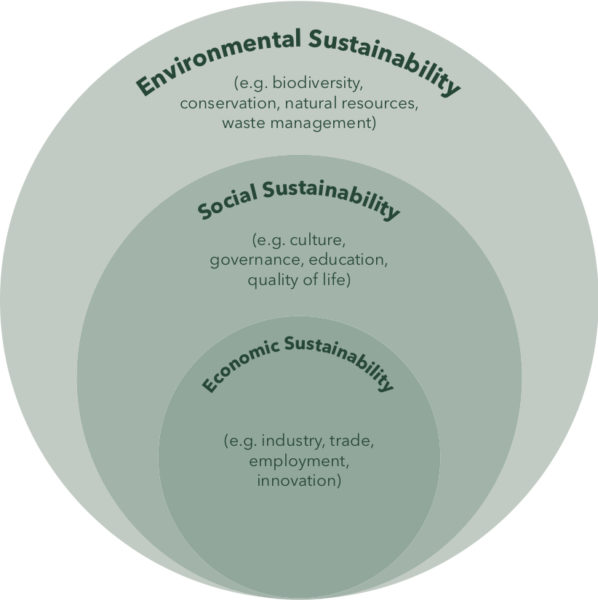
Sustainability at William & Mary encompasses the dynamic interactions between society and the environment, operating in ways that improve the well-being of all.
Sustainability is a vast concept used to describe anything from the environment, to development, to lifestyle habits, and more. Since the word is used so frequently, it can be difficult to give it a single definition. But ultimately, sustainability is built on the interactions between three elements: the environment, society, and the economy.
Before coming to William & Mary, my understanding of sustainability was limited to individuals’ interaction with the environment: living a low-waste lifestyle, reusing materials, reducing consumption, recycling, etc. I knew there was more to holistic sustainability, but I never had the chance to explore the intersections between the previously mentioned pillars.
The first time I visited W&M was during the 2019 Day for Admitted Students. I wasn’t sure what to expect. I remember feeling overwhelmed as I walked by future classmates and potential friends, strolled past brick buildings that I would eventually attend class in, and made my rounds through Kaplan Arena learning about the over 450 clubs on campus. I wasn’t exactly sure how I was going to get involved on campus, but what I did know was that I wanted to bridge my interests in sustainability and health. That’s when I stumbled upon Global Medical Brigades.
Global Medical Brigades (GMB) was my first introduction to the social aspect of sustainability. The organization is a branch of the larger Global Brigades non-profit that focuses on collaborating with communities around the world to resolve health and economic disparities. GMB strives to steer away from traditional international development that rarely creates long-lasting impacts on communities. Essentially, their objective is to empower communities to be self-sustaining.
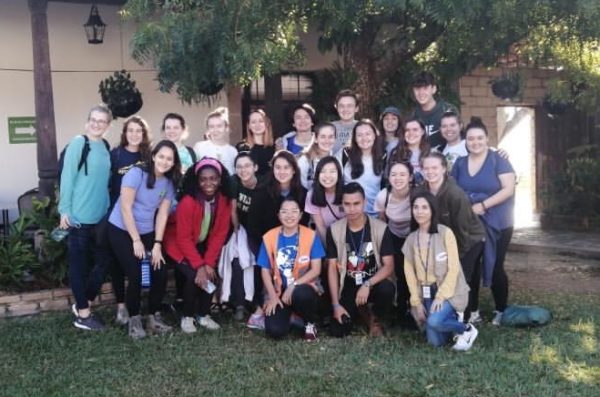
Here is our William & Mary group and our three translators at the Global Brigades compound in Posada Azul, Honduras!
While the organization works in-country year-round, our W&M GMB chapter travels once a year to a community partner. This year we traveled to Sabana Redonda and el Plan de la Lima in Honduras. During our meetings, we practice conversational Spanish, review medical terminology in Spanish, discuss relevant social and public health issues, and learn about common diseases in Honduras. Over the course of a week in-country, we shadow local doctors at health clinics, partner with families to build latrines or eco-stoves, and take part in building water lines. However, due to COVID-19, we were only able to volunteer at medical clinics and had to forgo the public health days to return home early when borders began to close.
A few months into quarantine, I started working with the Office of Sustainability as the summer communications intern. Through this opportunity, I have been able to explore the ins and outs of what the Office does, create a weekly newsletter, and collaborate with other interns on exciting projects for the Fall. Not only have I learned about the plentiful ways to get involved in sustainability on campus, whether that be by joining clubs, interning with the Office (we have two open positions!), applying for grants and research funding, and more, but I have also been able to further understand what holistic sustainability is.
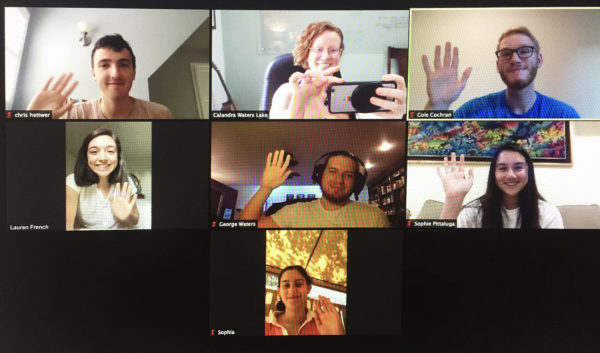
Calandra Waters Lake, the Director of Office of Sustainability, and us summer interns on one of our weekly Zoom meetings!
I joined the team during a very important moment in history. Not only are we living through a pandemic that has ravaged through communities (impacting people of color and low-income communities at much higher rates), but we have also seen the resurgence and expansion of the Black Lives Matter movement. And yes, sustainability on all levels is incredibly relevant. As our Director Calandra Waters Lake put it, “the way forward cannot leave anyone behind.” In other words, moving forward we have to focus on the intersectionality of race, sustainability, social justice, and the environment.
My involvements with Global Medical Brigades and the Office of Sustainability have consistently challenged me to think beyond my initially narrow understanding of sustainability and focus on the dynamic intersectionality of this term/concept. Although this year (in person) was cut short, I can confidently say that the most valuable lesson I’ve learned since becoming a part of the Tribe is no matter what interest you choose to pursue, the concept of sustainability, intersectionality, and continuation of learning will always follow you.

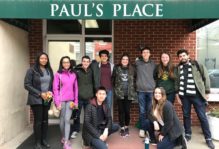

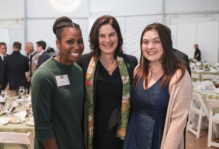
No comments.
Comments are currently closed. Comments are closed on all posts older than one year, and for those in our archive.